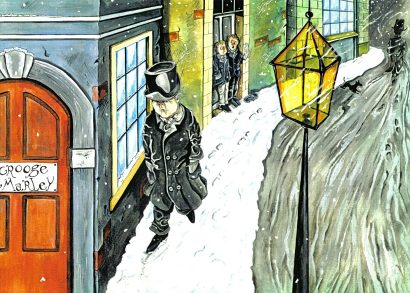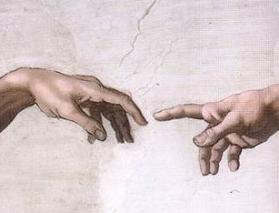 In a recent article on Dave Ramsey on the subject of poverty, Rachel Held Evans quotes Ramsey as saying, “There is a direct correlation…between your habits, choices and character in Christ and your propensity to build wealth.” She then goes on to claim that this teaching flirts with the prosperity gospel, which can be construed as God blesses those with wealth who bless God. Among other things, Evans also writes of how Ramsey’s view does not account for the structures that make and keep people poor in America.
In a recent article on Dave Ramsey on the subject of poverty, Rachel Held Evans quotes Ramsey as saying, “There is a direct correlation…between your habits, choices and character in Christ and your propensity to build wealth.” She then goes on to claim that this teaching flirts with the prosperity gospel, which can be construed as God blesses those with wealth who bless God. Among other things, Evans also writes of how Ramsey’s view does not account for the structures that make and keep people poor in America.
Here’s what Pastor Kenneth Edward Copeland had to say about Evans’ article:
In my opinion, Rachel Held Evans rightly points to, but does not explicitly call out, an insidious and debilitating flaw in American evangelicalism: an overemphasis on individual salvation to the neglect of how the Gospel impacts systematic, structural, and corporate evil/injustice. The so-called prosperity gospel and its evangelical cousin (the trickle-down social ethic that says society’s ills would be solved if everyone were “saved”) share the fallacy that personal responsibility and wise choices alone are what separate the rich from the poor. In other words, the poor are poor because they don’t have enough faith (standard prosperity gospel) or they aren’t employing biblical principles/making wise choices (evangelical prosperity gospel).
The Bible paints a more complex and realistic picture about the causes of poverty…My real problem is that my middle/upper class brothers and sisters (especially those who are more “reformed” than “Christian”) are always using the term “sovereign grace” but never seem to apply it when discussing poverty. Bottom line: You did not choose the country, century, parents, or zip code you were born to. God did. In doing so He granted you privileges, opportunities, and choices that others did not receive. Consequently, you are not where you are solely because you made all the right choices, had enough faith, and/or bought Dave Ramsey’s book. You are where you are because God gave you favor. To suggest otherwise denigrates the very grace we all claim to hold so dearly.
Evans’ and Copeland’s discussions of Ramsey as well as Evangelicalism led me to reflect back on something I said in my Advocacy and Justice class earlier this semester. I sometimes find in Evangelical circles two competing convictions: first, none of us deserve the economy of God’s grace, yet we should accept God’s grace; second, the poor are poor because of laziness, and don’t deserve for us to help them advance economically. I agree with the first claim. I disagree with the second claim on three counts: not all poor people are poor because of laziness (in fact, some rich people are rich in spite of their laziness); there are poor people who are poor in spite of their hard work, as the film The Line makes clear; and we are called to extend grace to undeserving people (laziness is not the unforgiveable sin), just like God did to us.
Certainly, Scripture has much to say against the sluggard and how the sluggard’s ways will lead to ruin whereas the diligent person’s hard work will lead to success (See for example Proverbs 13:4: “The soul of the sluggard craves and gets nothing, while the soul of the diligent is richly supplied;” ESV). However, such statements as those found in Proverbs are general principles of wisdom that merit careful consideration, not universally binding principles that apply to each and every situation where one comes across poverty or riches. There are other reasons why people become poor or rich, including systemic structures that make and keep people rich and others poor, as I have noted in various writings over the years, including Consuming Jesus: Beyond Race and Class Divisions in a Consumer Church.
I don’t know any Evangelical who doesn’t like Charles Dickens’ Christmas Carol, although Dickens didn’t like Evangelicals all that much. We all take to heart the change of heart in Ebenezer Scrooge, who had been such a scrooge concerning the poor and his own employee who worked so hard for so little. Only as Scrooge, who looked a lot like the rich fool of Luke 12, comes to terms with his future destiny in view of his miserly ways does he give charitably to all. God’s severe mercy brings an end to his bad karma ways. Scrooge ends up being like God: he pours out good gifts on all lavishly regardless of their merit. Hard work has its place, just not the place that determines who becomes a benefactor of God’s grace.
This piece is cross-posted at The Institute for the Theology of Culture: New Wine, New Wineskins and at The Christian Post.
















